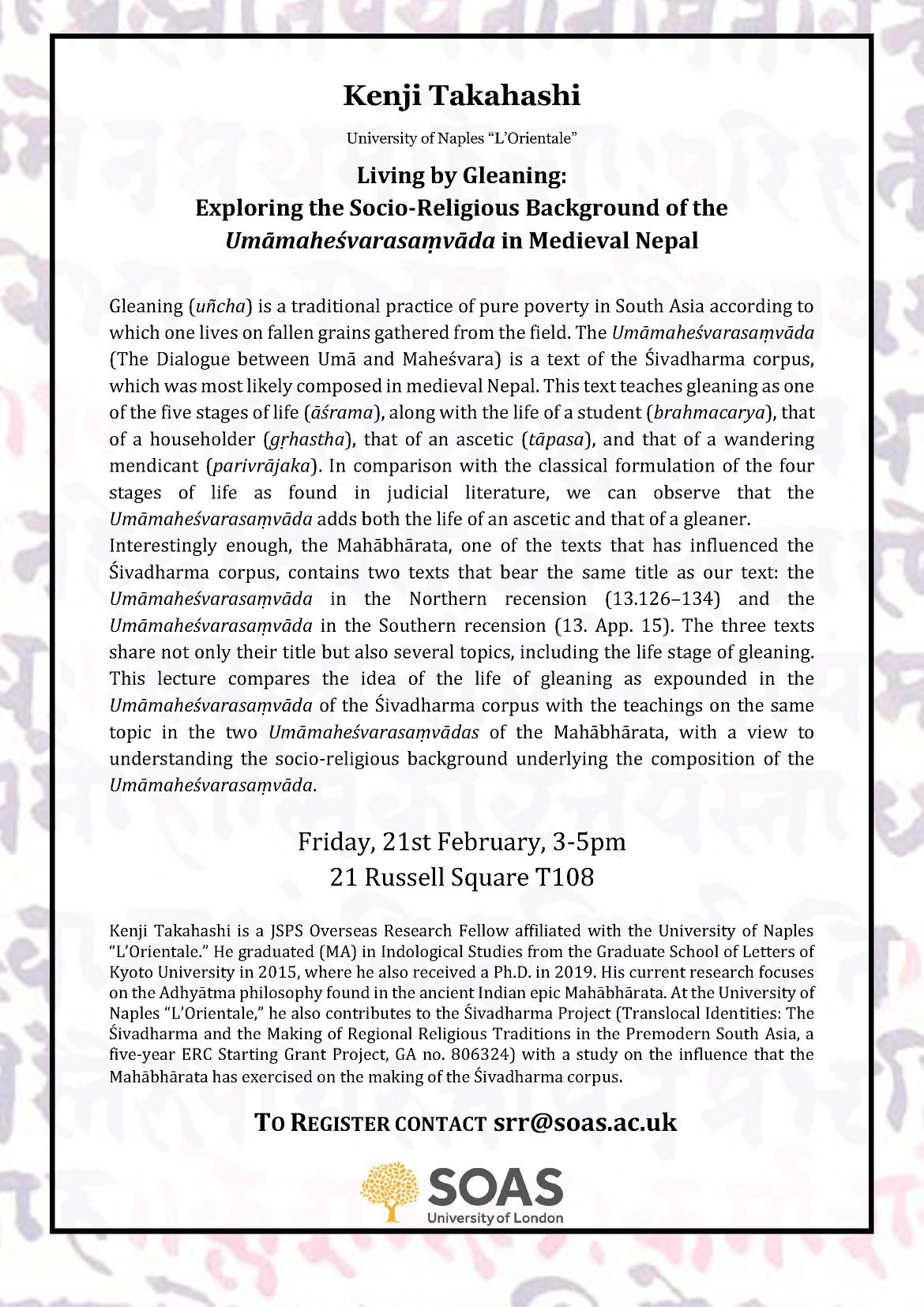Kenji Takahashi will deliver a lecture about his ongoing research on the Śivadharma corpus at SOAS (University of London) on 21 February (Fri).
Title: Living by Gleaning: Exploring the Socio-Religious Background of the Umāmahśvarasaṃvāda in Medieval Nepal
When: Friday, 21st February
Where: 21 Russel Square T108
To register contact: srr@soas.ac.uk
Abstract: Gleaning (uñcha) is a traditional practice of pure poverty in South Asia according to which one lives on fallen grains gathered from the field. The Umāmaheśvarasaṃvāda (The Dialogue between Umā and Maheśvara) is a text of the Śivadharma corpus, which was most likely composed in medieval Nepal. This text teaches gleaning as one of the five stages of life (āśrama), along with the life of a student (brahmacarya), that of a householder (gṛhastha), that of an ascetic (tāpasa), and that of a wandering mendicant (parivrājaka). In comparison with the classical formulation of the four stages of life as found in judicial literature, we can observe that the Umāmaheśvarasaṃvāda adds both the life of an ascetic and that of a gleaner.
Interestingly enough, the Mahābhārata, one of the texts that has influenced the Śivadharma corpus, contains two texts that bear the same title as our text: the Umāmaheśvarasaṃvāda in the Northern recension (13.126–134) and the Umāmaheśvarasaṃvāda in the Southern recension (13. App. 15). The three texts share not only their title but also several topics, including the life stage of gleaning. This lecture compares the idea of the life of gleaning as expounded in the Umāmaheśvarasaṃvāda of the Śivadharma corpus with the teachings on the same topic in the two Umāmaheśvarasaṃvādas of the Mahābhārata, with a view to understanding the socio-religious background underlying the composition of the Umāmaheśvarasaṃvāda.

